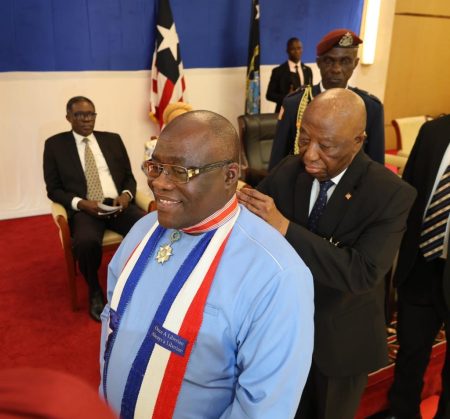The Nigerian government has refuted claims of a new terrorist group operating within its borders, following warnings from the Turkish government about the presence and activities of the Fethullah Terrorist Organisation (FETO). This disagreement highlights a complex interplay of international relations, differing perceptions of threat, and the potential for domestic political considerations to influence national security assessments. While Turkey designates FETO as a terrorist organization, linking it to a failed 2016 coup attempt, Nigeria maintains that there is no evidence of FETO engaging in terrorist activities within its territory. This divergence in perspective underscores the challenges in achieving a globally unified approach to counterterrorism, as nations often prioritize their own security interests and interpretations of threat.
The Turkish government, under President Recep Tayyip Erdogan, has consistently accused FETO, allegedly led by the late cleric Fethullah Gulen, of orchestrating the 2016 coup attempt. Gulen, who resided in self-imposed exile in the United States, vehemently denied these accusations until his death in 2024. Despite his denials, Turkey designated Gulen’s network of schools, charities, and other organizations as a terrorist entity, actively pursuing its dismantlement both domestically and internationally. Ankara has repeatedly urged its allies, including Nigeria, to take similar action, citing the potential threat posed by FETO’s presence. This diplomatic pressure reflects Turkey’s determination to eradicate what it perceives as a significant threat to its national security and political stability.
The Nigerian government, however, has adopted a cautious approach, emphasizing the lack of concrete evidence linking FETO to terrorist activities within its borders. While acknowledging the presence of Gulen-affiliated institutions in Nigeria, the government maintains that these institutions operate primarily in the education and healthcare sectors, with no demonstrable connection to terrorism. This stance suggests a commitment to evidence-based security assessments, prioritizing internal intelligence and independent analysis over accepting foreign designations at face value. It also reflects Nigeria’s own complex security landscape, grappling with various internal security challenges, including Boko Haram and other militant groups, which may influence its threat perception and resource allocation.
The differing perspectives on FETO’s status highlight the subjective nature of terrorism designations and the influence of political context. While Turkey views FETO as an existential threat, based on its alleged involvement in the 2016 coup attempt, Nigeria, lacking any evidence of similar activities within its territory, does not share this assessment. This discrepancy underscores the challenge of achieving international consensus on terrorism, particularly when accusations are intertwined with domestic political dynamics. The Nigerian government’s insistence on concrete evidence before designating FETO as a terrorist organization reflects a commitment to due process and a desire to avoid actions that could potentially destabilize its internal situation.
The situation also raises questions about the potential impact of diplomatic pressure on national security decisions. While Turkey’s concerns about FETO are understandable given its own experience, Nigeria must prioritize its own national security interests and make decisions based on its own internal assessments. Succumbing to external pressure without sufficient evidence could lead to unintended consequences, including the targeting of legitimate organizations and the erosion of public trust in the government’s counterterrorism efforts. Maintaining a balanced approach, considering both external warnings and internal intelligence, is crucial for effective counterterrorism strategy.
Ultimately, the debate surrounding FETO’s status in Nigeria exemplifies the complexities of international counterterrorism efforts. Differing national interests, varying threat perceptions, and the potential for political influence all contribute to the challenge of achieving a unified approach. Nigeria’s cautious stance, emphasizing the need for concrete evidence before designating FETO as a terrorist organization, reflects a prudent approach in navigating this complex landscape. This approach prioritizes internal security assessments and safeguards against potentially destabilizing actions based solely on external pressure or foreign designations. As the global fight against terrorism continues, navigating these complexities and fostering international cooperation based on shared evidence and mutual respect will be crucial for achieving effective and sustainable outcomes.














